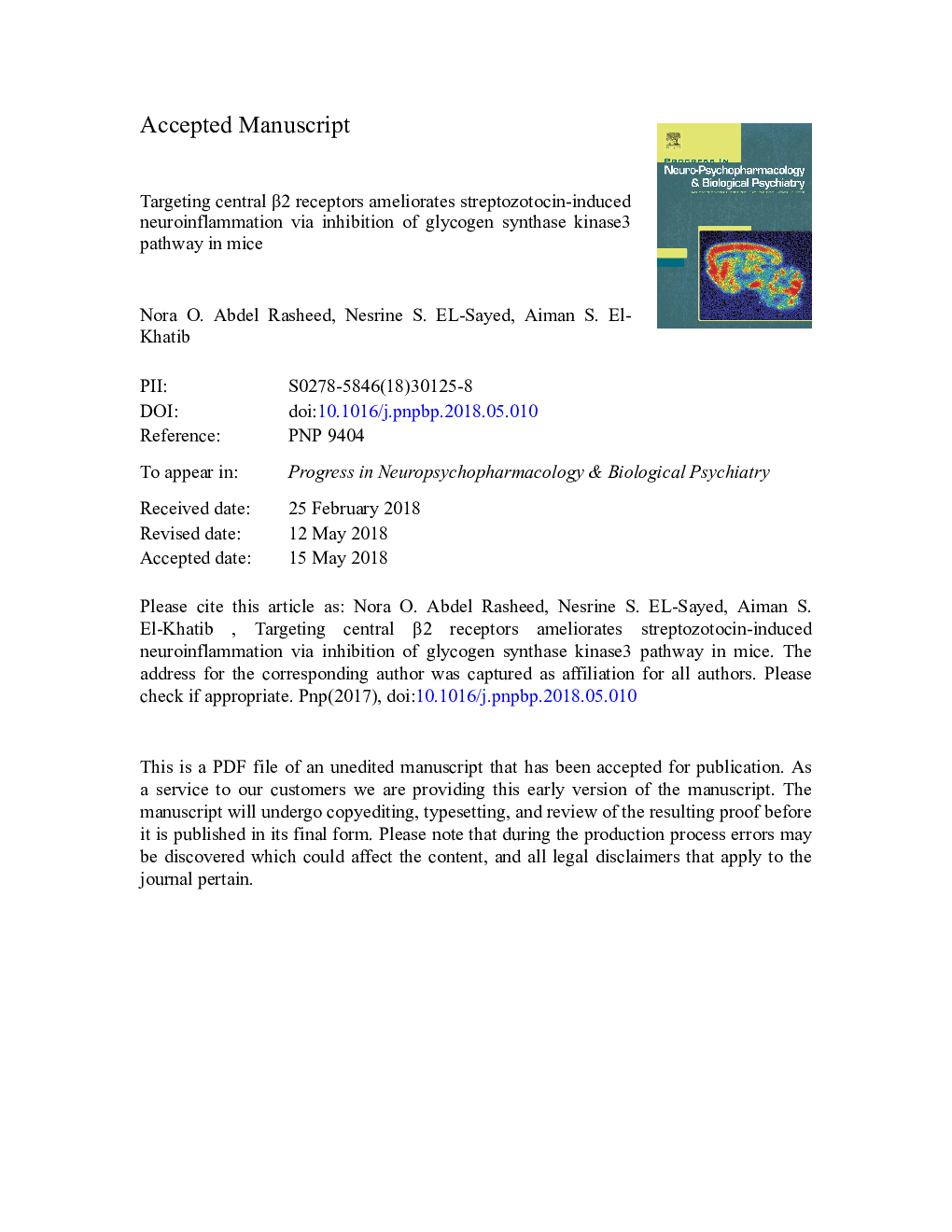| Article ID | Journal | Published Year | Pages | File Type |
|---|---|---|---|---|
| 8537199 | Progress in Neuro-Psychopharmacology and Biological Psychiatry | 2018 | 52 Pages |
Abstract
In the current study, protective effects of formoterol in STZ-induced SAD were studied. Formoterol-induced improvement in cognition was confirmed using Morris water maze and Y maze together with histopathological evidences. Moreover, prominent declines in oxidative stress, neuro-inflammation, and apoptotic parameters were recorded upon its injection in STZ-induced SAD mouse model. This was manifested by the decrement of malondialdehyde, hydrogen peroxide, interleukin-1β, interleukin-6, tumor necrosis factor-α, and caspase-3levels contrary to reduced glutathione and interleukin-10 increments. Formoterol also reversed STZ-induced alteration in acetylcholine and glutamate levels. Furthermore, it could be concluded that formoterol was capable of combating STZ-induced neuro-inflammation and retarding the development of the main pathological hallmarks of AD through glycogen synthase kinase-3 deactivation.
Keywords
β2 adrenoceptorMDAβ2ARMELPVDFGSK-3IBA1GSHAβMWMSTZH&EstreptozotocinNeuro-inflammationFADAlzheimer's diseaseSporadic Alzheimer's diseasetumor necrosis factor-alphaSADFamilial ADTNF-αFormoterolMorris water mazemalondialdehydeMiceamyloid β proteinPolyvinylidene fluoridereduced glutathioneglycogen synthase kinase-3
Related Topics
Life Sciences
Neuroscience
Biological Psychiatry
Authors
Nora O. Abdel Rasheed, Nesrine S. El Sayed, Aiman S. El-Khatib,
